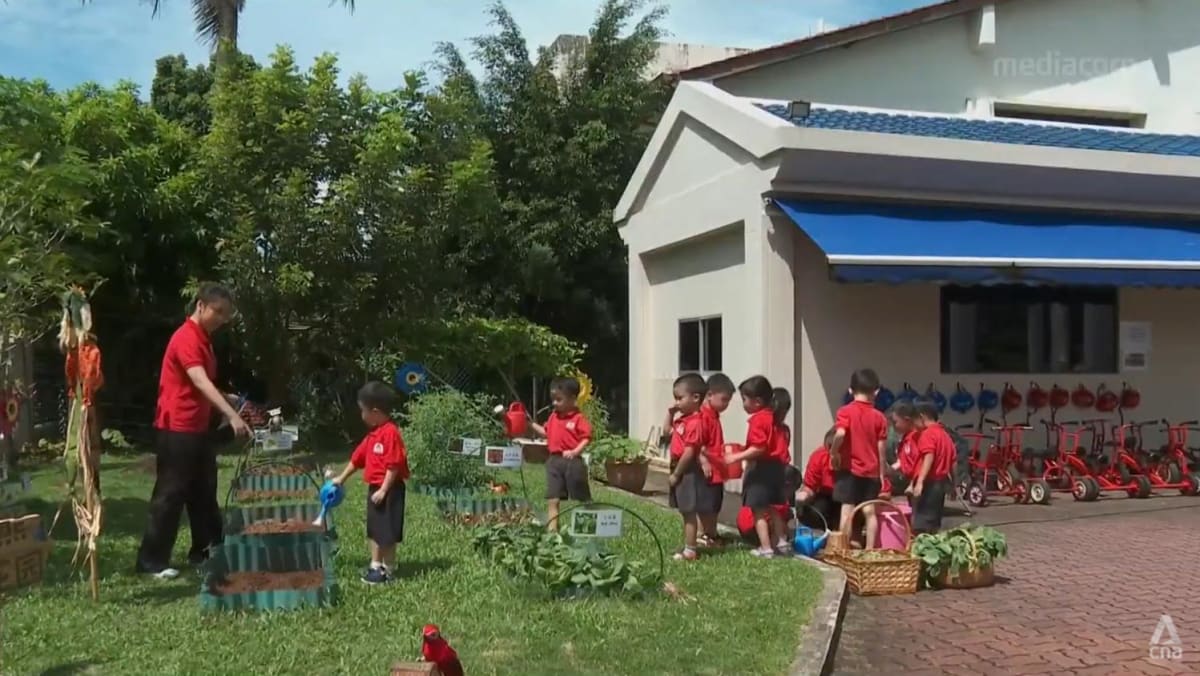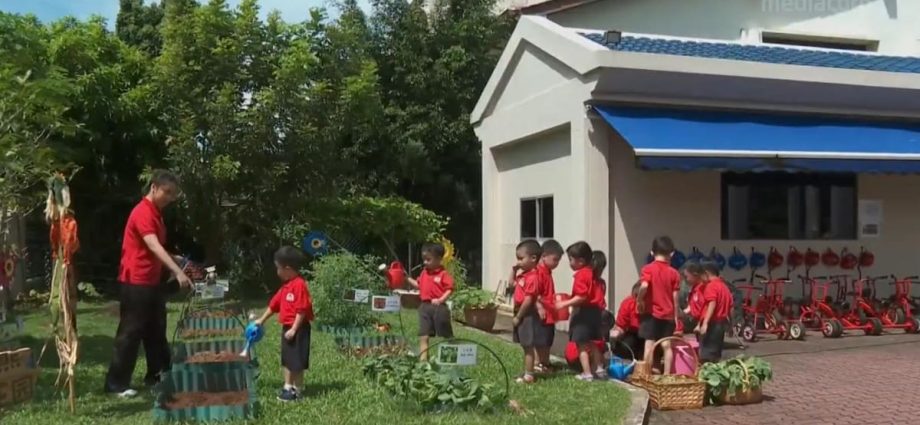
The concept of “reduce, reuse and recycle” also goes beyond food.
For example, the school practices recycling throughout the year, collecting materials to create props for their end-of-year graduation concert, such as styrofoam and cardboard.
At another pre-school, Little Skool-House, pupils recycle kitchen scraps into compost for the community garden, using the school’s newly acquired food waste machine that gobbles up leftovers like egg shells and apple cores.
Ms Tan Chujun, principal of the Little Skool-House located at Republic Polytechnic, said the school’s programme is developed around topics that the children are interested in.
“So they have been very curious since the food waste machine arrived in school. They are asking questions on how and what really happens in the food waste machine,” she said, adding that the children can observe the process of food being broken down in the compost bottles.
“From there, they know that whenever they see leftovers, they are very conscious of reminding one another to finish up, or they can put it into the food waste machine,” said Ms Tan.
TRICKLE-UP EFFECT
Training pupils from such a young age generates a trickle-up effect, said educators.
Mrs Yuen, who has more than 18 years of experience in the education sector, said children are more receptive to fresh ideas, making it easier to shape their mindsets.
“You want to be able to inculcate all these good habits, and also make them aware of what the environment would be like if they (do not) help to take care of their environment,” she said.
Ms Tan from Little Skool-House said that her pupils have been “our advocates”, adding that they take home with them what they learn in school, reminding their parents and practising it at home.

